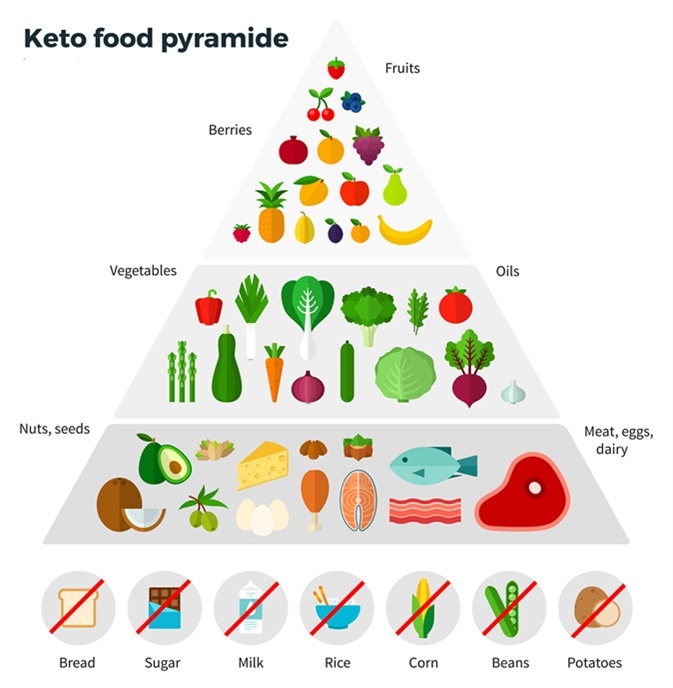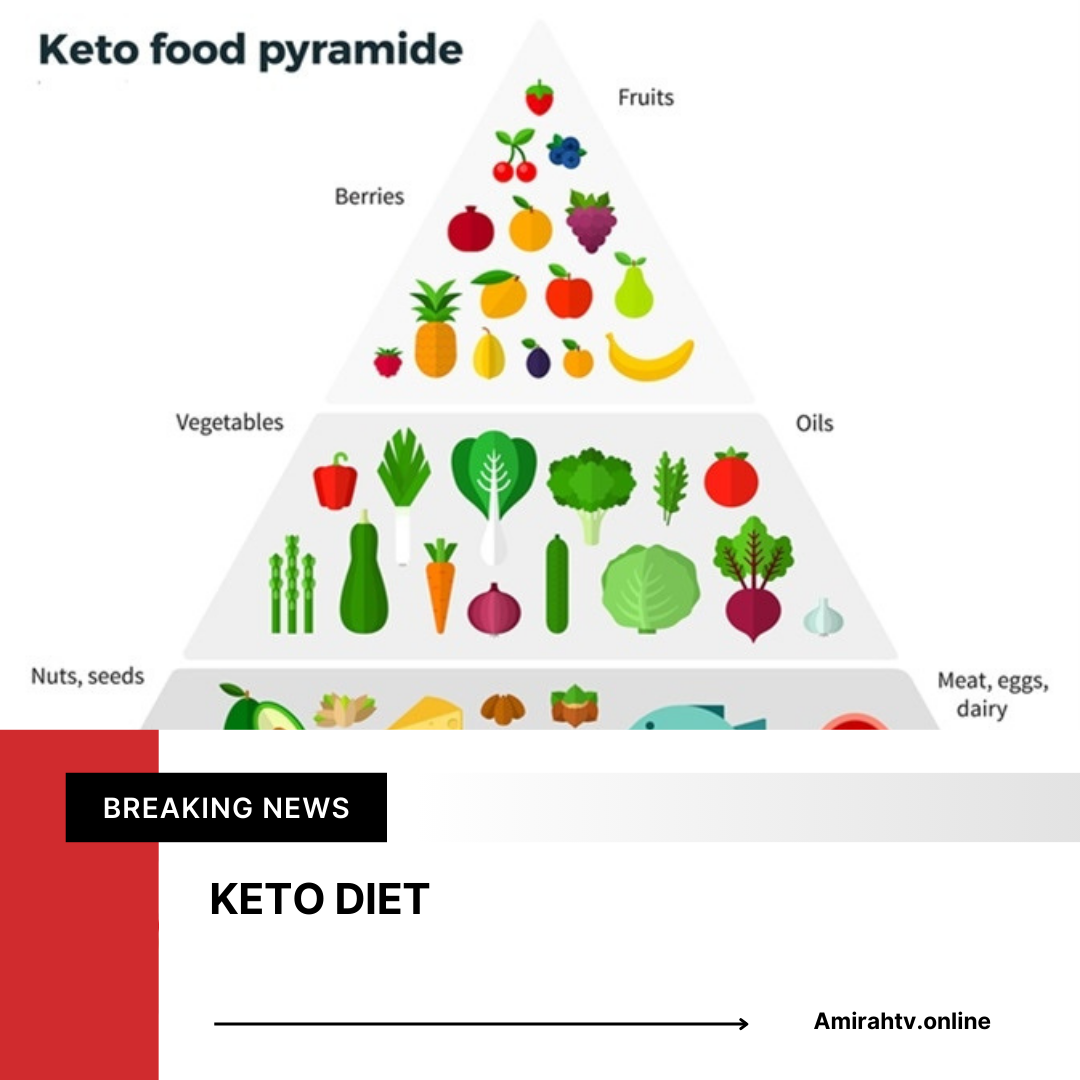
The ketogenic, or “keto,” diet is
a high-fat, very low-carbohydrate eating plan that shifts the body’s metabolism away from burning sugar (glucose) and toward burning fat for fuel. This metabolic state is known as ketosis, during which the liver produces ketones from fat to serve as an alternative energy source for the brain and body.
Foods to eat:
- Fats and Oils: Avocado, butter, heavy cream, and olive oil.
- Protein: Meat, poultry, eggs, and fatty fish such as salmon and mackerel.
- Dairy: Full-fat cheeses, plain yogurt, and cottage cheese.
- Low-Carb Vegetables: Leafy greens, broccoli, cauliflower, asparagus, bell peppers, and mushrooms.
- Nuts and Seeds: Almonds, walnuts, chia seeds, and flaxseeds.
- Berries: In small portions, berries like strawberries and raspberries.
- Other: Herbs, spices, and avocados.
Foods to avoid:
- Sugary Foods: Soda, fruit juice, pastries, and candy.
- Grains and Starches: Wheat-based products, rice, pasta, and cereal.
- Most Fruits: High-sugar fruits like bananas, grapes, and pineapple. Small portions of berries are often an exception.
- Starchy Vegetables: Potatoes, sweet potatoes, and corn.
- Beans and Legumes: Peas, lentils, and chickpeas.
- Processed Fats: Margarine and processed vegetable oils.
Potential health benefits
- Epilepsy treatment: The diet was originally developed in the 1920s to help reduce seizures in children with epilepsy.
- Weight loss: It can lead to rapid, short-term weight loss due to reduced appetite and increased fat burning.
- Type 2 diabetes: A keto diet can help improve blood sugar management and insulin sensitivity in the short term, but long-term effectiveness varies.
- Heart health: Some studies show that it may improve risk factors for heart disease by lowering triglycerides and increasing HDL (“good”) cholesterol, though effects on LDL (“bad”) cholesterol are mixed.
Potential risks and side effects
- Keto flu: During the initial phase, many people experience flu-like symptoms, including fatigue, headache, nausea, and irritability, as their body adapts to using fat for energy.
- Nutrient deficiencies: Restricting many fruits, vegetables, and grains can lead to low intake of important vitamins, minerals, and fiber.
- Kidney health issues: The high animal protein and low fruit/vegetable intake can increase the risk of kidney stones.
- Digestive problems: The lack of fiber can cause constipation.
- Increased cholesterol: For some individuals, the high-fat intake can raise LDL (“bad”) cholesterol to unhealthy levels.
- Long-term sustainability: Many find the diet’s strict food restrictions difficult to maintain over the long term, which can lead to weight regain.
- Long-term health concerns: The long-term effects of the keto diet are not fully understood, and some research links it to potential long-term risks, including liver problems, bone health issues, and an increased risk of heart disease.
Before starting the keto diet
It is crucial to consult with a healthcare provider or a registered dietitian before starting a ketogenic diet, especially for those with pre-existing conditions like diabetes, kidney, liver, or gallbladder disease. The restrictive nature of the diet means it is not safe or suitable for everyone.



